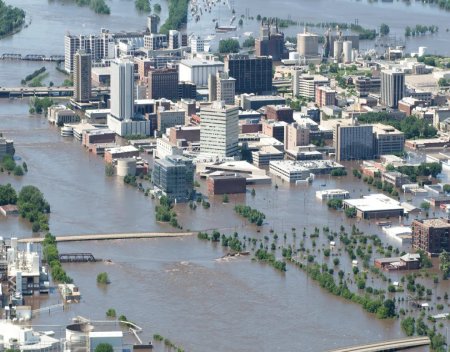
Does How My Home Was Built Affect My Flood Insurance Rates?
Flood zones are areas designated by the Federal Emergency Management Agency (FEMA) or local authorities that are at risk of flooding.
If you live in or near a flood zone, it’s important to take specific precautions to protect your property and ensure your safety.
Here are some key measures you can take:
Preparation Before a Flood Know Your Risk: Understand the flood risk in your area by consulting FEMA flood maps or local resources.
Insurance: Purchase flood insurance.
Standard homeowner's insurance does not cover flood damage.
Emergency Plan: Develop an emergency plan that includes evacuation routes, communication plans, and a list of emergency contacts.
Identify a safe meeting place for family members.
Emergency Kit: Prepare an emergency kit with essential items such as water, non-perishable food, medications, first aid supplies, flashlights, batteries, and important documents.
Home Preparation: Install sump pumps with battery backup.
Elevate electrical appliances and utilities (such as water heaters, furnaces, and electrical panels) above potential flood levels.
Seal basement walls with waterproofing compounds.
Install backflow valves to prevent sewage backups.
Landscaping: Use landscaping to direct water away from your home.
This may include creating swales, installing rain gardens, or using permeable paving materials.
During a Flood Stay Informed: Monitor local news and weather reports for updates and evacuation orders.
Evacuation: Evacuate immediately if instructed by authorities.
Follow designated evacuation routes and avoid shortcuts, which may be blocked or dangerous.
Safety First: Avoid walking or driving through floodwaters.
Six inches of moving water can knock you down, and one foot of moving water can sweep away a vehicle.
If you are trapped in a building, move to the highest level but avoid attics without an escape route.
Go onto the roof only if necessary and signal for help.
After a Flood Return Safely: Return home only when authorities have declared it safe to do so.
Inspect for Damage: Check for structural damage before entering your home.
Be cautious of potential hazards such as gas leaks, electrical issues, and unstable structures.
Cleanup: Wear protective gear during cleanup, including gloves, masks, and boots.
Remove standing water and dry out your home to prevent mold growth.
Discard contaminated food, beverages, and medicines that have come into contact with floodwater.
Document Damage: Take photographs and make a list of damaged items for insurance claims.
Seek Assistance: Contact your insurance company to start the claims process.
Look for assistance from local, state, and federal agencies, including FEMA.
By taking these precautions, you can significantly reduce the risk to your property and personal safety during a flood event.
I have known Tim for many years and he is a man with great integrity, work ethic and one of the nicest persons I know. Over the years Tim has provided insurance counseling and advice to our company, for myself personally, as well as to our clients. Recently Tim, took time to analyze our flood insurance policy and he was able to make some excellent recommendations. Our flood insurance costs are now less and we have much better coverage. I recommend Tim to anyone without hesitation or reservation.
I have no problem giving you an A1 reference for taking care of the flood policies for me and Diane. I appreciate you working with the mortgage company: the surveyor and our previous agent. The result was a 75% reduction in our flood insurance premiums!
We contacted Mr. Holt for an estimate via email over the weekend prior to a closing on a property, hoping for a response on the following Monday to take with us with confidence in being insured at the settlement table on a Tuesday. He exceeded our expectations not once but in readily responding to the initial request and then to follow-up questions all during the weekend frenzy that occurs before closing. "Impressive and responsive customer service," for sure!